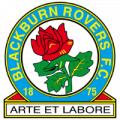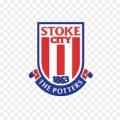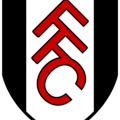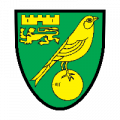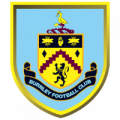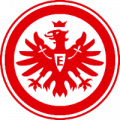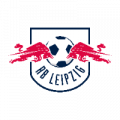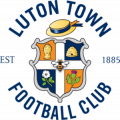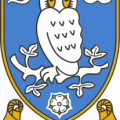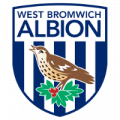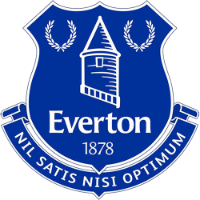
Everton Football Club
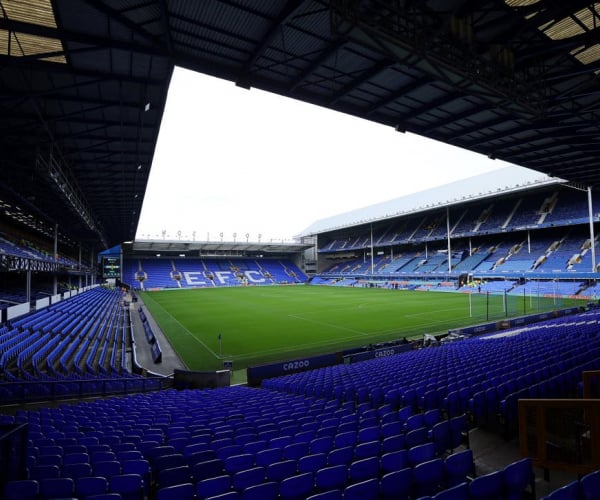
1877 Liverpool
Everton FC are an English football club who compete in the Premier League and play their home games at Goodison Park. Formed in 1878, they were a founder member of the Football League in 1888 and have played in England’s top flight for a record 118 seasons. The Merseyside club have only ever missed four top division seasons and possess the third-highest all-time points total.
Everton have won nine league titles, five FA Cups, one European Cup Winners’ Cup and nine Community Shields. Their last trophy success came in 1995, in the FA Cup. The club’s longest serving manager was Harry Catterick, who was in charge from 1961 to 1973, totalling 594 first team games. The most successful manager has been Howard Kendall, who guided the club to seven trophies during his first spell as manager in the 1980s.
Brief History
Everton were founded in 1878 as St. Domingo’s FC but were quickly renamed to reflect the area of Liverpool in which they were formed. The club was a founding member of the Football League in 1888/89 and won their first League Championship title in the 1890/91 season. An FA Cup and another league title followed before the outbreak of World War I in 1914. Everton were the reigning champions when war broke out and, quite remarkably, were in the same position in 1939 at the start of World War II.
In the interwar years, Everton were a first division force. Sustained success came courtesy of Dixie Dean, who Everton signed in 1927 from Tranmere Rovers and would go on to become the club’s greatest player. Dean set the record for top-flight league goals in a single campaign with 60 goals in 39 league games — it is a record that he holds to this day.
Dean helped Everton claim their third league title but relegation came two years later during a period of internal conflict at the club. Demotion proved little more than a blip as the Merseysiders rebounded up to the top-flight at the first time of asking and won their fourth first division title straight after promotion. The team’s glory years came to an end in 1939 after claiming a further domestic title and FA Cup.
WWII brought the curtain down on Everton’s trophy-laden era and, having seen the team split up at the conclusion of the war, a weakened side were relegated for a second time to the second division, where they stayed for three seasons. That spell in the lower division in the early 1950s is the last time that Everton have been outside of the top flight.
The arrival of Harry Catterick in 1961 saw Everton’s fortunes improve once more. A sixth League Championship arrived in the manager’s second season in charge and they claimed another FA Cup when they defeated Sheffield Wednesday in 1966. Catterick oversaw another domestic title success four seasons later and his team became the first English club to achieve five consecutive years in European competition (1962-67).
Catterick’s retirement came as Everton’s performances had started to wain, and his successors (Billy Bingham and Gordon Lee) failed to win any further silverware for the remainder of the 1970s.
Howard Kendall, a former midfielder for the club, took over as manager in 1981 and guided Everton to their most successful era. Domestically, Everton won the FA Cup in 1984 and two League Championships in 1985 and 1987. The club’s only European trophy success to date came in 1985 when they defeated Rapid Vienna of Austria 3-1 in the Cup Winners’ Cup. Failing to retain the FA Cup in that same season denied Everton the chance of securing an historic treble.
After the Heysel Stadium disaster, which saw English clubs banned from European competition, Everton lost the chance to compete for continental trophies and a large part of the title-winning side was dismantled. Kendall moved to Athletic Bilbao in 1987 and was succeeded by his assistant Colin Harvey, who took the team to the 1989 FA Cup final but lost to Liverpool in extra-time.
When the Premier League came into being in 1992, Everton were a founding member but found it difficult finding the right manager to take them into football’s new era. Kendall returned for a brief spell on the sidelines while Mike Walker also tried his hand in the dugout. However, it wasn’t until Joe Royle took over in 1994 that the club’s form started to improve; they reached a fifth FA Cup final and also played their first European campaign in a decade.
Yet, Everton’s struggles in the new league didn’t disappear. They only avoided relegation due to a superior goal difference to Bolton Wanderers in 1998 and Walter Smith, who had arrived having previously managed Rangers, could only manage three successive finishes in the bottom half of the table.
It was following this poor run that Everton plumbed for David Moyes, who had impressed as manager of Preston North End. The Scottish coach oversaw Everton’s most promising period of the Premier League era to date and made the club a regular presence in the top third of the table. The breakthrough of teenage striker Wayne Rooney also aided the club’s fortunes.
A fourth-placed finish in 2005 ensured Everton qualified for the Champions League qualifying round for the first time in their history. However, they were eliminated before reaching the group-stages and dropped into the UEFA Cup, a competition which they also qualified for in 2008 and 2009. During Moyes’ reign, and under the ownership of Bill Kenwright, Everton splashed the cash and broke their record transfer fee paid on four occasions.
Moyes left his position in 2013 and Roberto Martinez took over. Despite a promising start, and an attempt to turn Everton into a more attractive side on the eye, the former Wigan manager was sacked three years later. Martinez’s dismissal marked the start of a hiring and firing spree. Five permanent managers were appointed in as many years (Ronald Koeman 2016, Sam Allardyce 2017, Marco Silva 2018, Carlo Ancelotti 2019, Rafael Benítez 2021).
This period of upheaval and dysfunctionality, which coincided with Iranian businessman Farhad Moshiri becoming the club’s majority shareholder, riled the supporters and matters rose to a head during the 2021/22 campaign.
Benitez became the first manager to cross Stanley Park from Liverpool to Everton. His six-month reign was be-riddled with power struggles and fan discontent. With the club slipping towards relegation following a season of damning form, Frank Lampard was appointed as manager and rescued their top-flight status in the penultimate match of the campaign.
Stadium
The southeast corner of Stanley Park originally housed Everton before the club became tenants at Anfield in 1884 and paid rent for the use of the land to the landowner John Orrell, who was a friend of Everton member John Houlding. When Houlding purchased Anfield he increased the rent payable by the club, which prompted them to move in 1892.
Goodison Park, the first major football stadium to be built in England, was opened in the Walton area of Liverpool in the same year and has been Everton’s home ever since. The stadium has staged more top-flight games than any other ground in the UK and was the only English club ground to host a semi-final at the 1966 World Cup.
Goodison Park, which currently has a capacity of 39,414, consists of the Goodison Road Stand, Bullens Road End, Howard Kendall Gwladys Street End and the Sir Phillip Carter Park Stand. St Luke’s Church sits adjacent to the stadium at the north west corner of the ground.
Since 1996 there have been indications that Everton will move to a new stadium, with a ground-share with Liverpool also being spoken about. In July 2021, Liverpool City Council granted planning permission for a 52,000-seater stadium to be built in the Bramley-Moore Dock and work began a month later. Everton are scheduled to move into their new stadium at the start of the 2024/25 season.
Honours
First Division Winners: 1890/91, 1914/15, 1927/28, 1931/32, 1938/39, 1962/63, 1969/70, 1984/85, 1986/87
First Division Runners-Up: 1889/90, 1894/95, 1901/02, 1904/05, 1908/09, 1911/12, 1985/86
FA Cup Winners: 1905/06, 1932/33, 1965/66, 1983/84, 1994/95
FA Cup Runners-Up: 1893, 1897, 1907, 1968, 1985, 1986, 1989, 2009
UEFA European Cup Winners' Cup Winners: 1984/85
League Cup Runners-Up: 1976/77, 1983/84
Second Division Winners: 1930/31
Second Division Winners: 1930/31
Second Division Runners-Up: 1953/54
FA Charity Shield Winners: 1928, 1932, 1963, 1970, 1984, 1985, 1986 (shared), 1987, 1995
Managers
Frank Lampard (Jan 2022 - present)
Rafael Benítez (Jun 2021 - Jan 2022)
Carlo Ancelotti (Dec 2019 - Jun 2021)
Marco Silva (May 2018 - Dec 2019)
Sam Allardyce (Nov 2017 - May 2018)
Ronald Koeman (Jun 2016 - Oct 2017)
Roberto Martinez (Jun 2013 - May 2016)
David Moyes (Mar 2002 - Jun 2013)
Walter Smith (Jul 1998 - Mar 2002)
Howard Kendall (Jun 1997 - Jul 1998)
Dave Watson (Apr 1997 - May 1997)
Joe Royle (Nov 1994 - Mar 1997)
Mike Walker (Jan 1994 - Nov 1994)
Howard Kendall (Nov 1990 - Dec 1993)
Colin Harvey (Jun 1987 - Oct 1990)
Howard Kendall (May 1981 - Jun 1987)
Gordon Lee (Jan 1977 - May 1981)
Billy Bingham (May 1973 - Jan 1977)
Harry Catterick (Apr 1961 - Apr 1973)
Johnny Carey (Oct 1958 - Apr 1961)
Ian Buchan (Jul 1956 - Sep 1958)
Cliff Britton (Sep 1948 - Feb 1956)
Theo Kelly (Jun 1939 - Sep 1948)
Thomas H McIntosh (July 1919 - May 1935)
W J Sawyer (Dec 1918 - May 1919)
William C Cuff (Aug 1901 - Dec 1918)
Richard Molyneux (Sep 1889 - May 1901)
W E Barclay (Aug 1888 - Sep 1889)
All-Time Top Scorers
Dixie Dean (383)
Graeme Sharp (159)
Bob Latchford (138)
Sandy Young (125)
Joe Royle (119)
All Time Appearances
Neville Southall (750)
Brian Labone - 534
Dave Watson - 528
Ted Sagar - 500
Kevin Ratcliffe - 494

